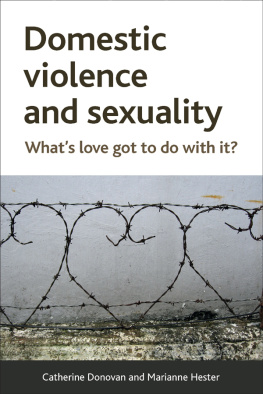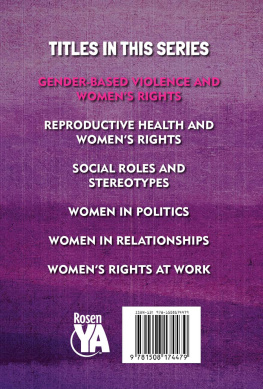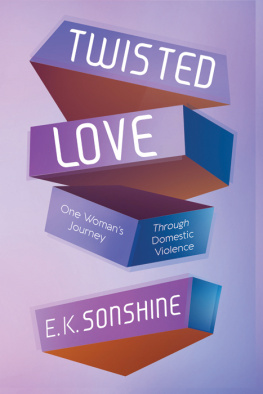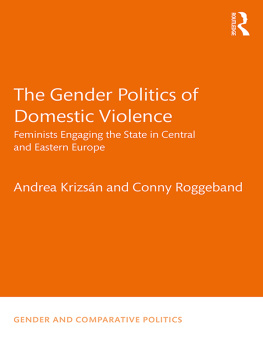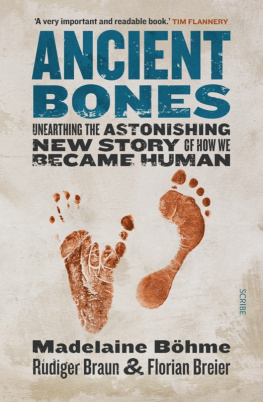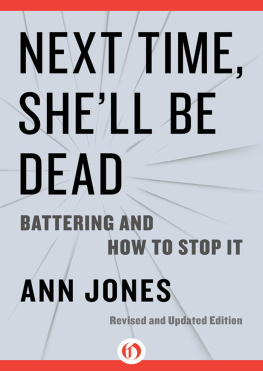Madelaine Adelman - Battering States: The Politics of Domestic Violence in Israel
Here you can read online Madelaine Adelman - Battering States: The Politics of Domestic Violence in Israel full text of the book (entire story) in english for free. Download pdf and epub, get meaning, cover and reviews about this ebook. year: 2017, publisher: Vanderbilt University Press, genre: Home and family. Description of the work, (preface) as well as reviews are available. Best literature library LitArk.com created for fans of good reading and offers a wide selection of genres:
Romance novel
Science fiction
Adventure
Detective
Science
History
Home and family
Prose
Art
Politics
Computer
Non-fiction
Religion
Business
Children
Humor
Choose a favorite category and find really read worthwhile books. Enjoy immersion in the world of imagination, feel the emotions of the characters or learn something new for yourself, make an fascinating discovery.

- Book:Battering States: The Politics of Domestic Violence in Israel
- Author:
- Publisher:Vanderbilt University Press
- Genre:
- Year:2017
- Rating:5 / 5
- Favourites:Add to favourites
- Your mark:
- 100
- 1
- 2
- 3
- 4
- 5
Battering States: The Politics of Domestic Violence in Israel: summary, description and annotation
We offer to read an annotation, description, summary or preface (depends on what the author of the book "Battering States: The Politics of Domestic Violence in Israel" wrote himself). If you haven't found the necessary information about the book — write in the comments, we will try to find it.
Battering States: The Politics of Domestic Violence in Israel — read online for free the complete book (whole text) full work
Below is the text of the book, divided by pages. System saving the place of the last page read, allows you to conveniently read the book "Battering States: The Politics of Domestic Violence in Israel" online for free, without having to search again every time where you left off. Put a bookmark, and you can go to the page where you finished reading at any time.
Font size:
Interval:
Bookmark:

BATTERING STATES

Battering States
The Politics of Domestic Violence in Israel
Madelaine Adelman
Vanderbilt University Press
Nashville
2017 by Vanderbilt University Press
Nashville, Tennessee 37235
All rights reserved
First printing 2017
This book is printed on acid-free paper.
Manufactured in the United States of America
Traditional Bedouin embroidery
Library of Congress Cataloging-in-Publication Data on file
LC control number 2016007510
LC classification number HV6626.23.I75 A34 2016
Dewey class number 362.82/92095694dc23
LC record available at lccn.loc.gov/2016007510
ISBN 978-0-8265-2131-6 (paperback)
ISBN 978-0-8265-2130-9 (hardcover)
ISBN 978-0-8265-2132-3 (ebook)
For my sisters.
Contents
Acknowledgments
THE RITUAL OF PREFATORY REMARKS CONVEYS meaningful messages, both about the behind-the-scenes production of the book as well as its author (Ben-Ari 1987). Being aware of these conventions has made me particularly self-conscious about my presentation of self and others within this component of the book. Nevertheless, I will draw on the textual tradition and attempt, but surely fail, to suitably acknowledge the many people who have generously shared their intellectual, personal, and material resources with me over the years.
I earned my undergraduate and graduate degrees at Duke University, the most beautiful and challenging campus imaginable. I am indebted to Anne Allison, miriam cooke, Virginia Dominguez, Karla Fischer, Richard Fox, Ernie Friedl, Roger Kaplan, Bruce Lawrence, Jean OBarr, Mack OBarr, Ellen Plummer, Orin Starn, and others from the Department of Anthropology and the Program in Womens Studies.
At Arizona State University, where cross-disciplinary conversations are more than encouraged, my thinking and writing are much improved because of former and current colleagues and students in the School of Justice Studies (now Justice and Social Inquiry); Jewish Studies Program; Religious Studies; Center for the Study of Religion and Conflict; Institute for Humanities Research; School of Social Work; School of Politics and Global Studies; Film & Media Studies; School of Human Evolution and Social Change; School of Film, Dance, and Theatre; and School of Social Transformation, including Elizabeth Segal, Nancy Jurik, Gray Cavender, Marjorie Zatz, Julia Himberg, Nancy Winn, Miriam Elman, Mary Bernstein, Jennifer Culbert, Michael Musheno, Souad Ali, Carolyn Forbes, Laurie Perko, Joel Gereboff, Linell Cady, Carolyn Warner, Miki Kittilson, Yasmin Saikia, Hava Tirosh-Samuelson, Ilene Singer, Rachel Leket-Mor, and Dawn Beeson; and I appreciate the career and scholarly guidance over the years from Anne Schneider, Marie Provine, Marjorie Zatz, Mary Margaret Fonow, and Beth Swadener.
The Association for Political and Legal Anthropology (APLA) at the American Anthropological Association, and the multidisciplinary Law and Society Association have been intellectual and professional homes, where I have been formed by the kinship and collegiality offered by so many, including Sally Merry, Lisa Neumann, Donna Coker, Phoebe Morgan, Jennifer Curtis, Sarah Hautzinger, Andrea Ballestero, Kate Sullivan, Susan Coutin, Carol Greenhouse, Susan Hirsch, Mindie Lazarus-Black, Rebecca Torstrick, John Conley, Jennifer Weis, Hillary Haldane, Erik Harms, and Catherine Besteman. The collaborative scholarship of Becky Dobash and Russell Dobash inspired this research. Scholarly circles at Martha Finemans innovative Feminist Legal Theory Workshop at Emory University and the Schusterman Center for Israel Studies at Brandeis University also offered resources for and feedback on my work.
I thank the founding editor of Violence Against Women, Claire Renzetti, for shepherding publications that helped form my thinking for . The manuscript reflects the reviewers incisive reading and comments, and I recommend that others work with the generous staff at Vanderbilt University Press, and with Ideas on Fire founder Cathy Hannabach, who developed the index.
The book is set within and possible because of the broadly defined feminist movement against gender violence in Israel, where a number of justice provocateurs (Aiken 2001; Cavender and Jurik 2012) and NGOs welcomed me, including Isha lIsha Haifa Feminist Center, Kayan-Feminist Organization, Haifa Rape Crisis Center, Women for Women Haifa Shelter for Battered Women, and Haifa Crisis Shelter for Women. I am grateful for Marilyn Safirs friendship, insight, hospitality, and guidance, and I have benefitted greatly from engagement with activists and researchers working in the region, including Nathalie Brochstein, Amalia Saar, Edna Erez, Nadera Shalhoub-Kevorkian, Hannah Safran, Michal Mor, Rula Deeb, Zvi Eisikovits, Muhammad Haj-Yahia, and many others. I also could not anticipate how much my work with the Gay, Lesbian & Straight Education Network (GLSEN) and education scholars and advocates would influence my thinking about social movements.
I would be lost without my extended family, who sustained me along the way, including Lauren Kotkin, Cory Greenberg, Marilyn Jarvis, Cheryl Reiss, Nora Haenn, Deanna Cavelli, Jen Robinson, Rebecca Stanier-Shulman, Ellen Ben-Naim, Deborah Waxman, and Christina Ager. Fellow ethnographic travelers Liz Faier, Sharon Lang, Patricia Woods, and honorary anthropologist and comrade Shoshana (Cohen) Ben-Yoar were invaluable during and after my fieldwork. Several additional logical family members nurtured me along with the research and writing process: Bahney Dedolph cheered me on and offered learned feedback; Nancy Jurik and Marjorie Zatz contributed impossible-to-reciprocate emotional and intellectual labor; Liz Segals friendship and hospitality were rivaled only by her intellectual gifts and institutional savviness; Nora Haenn reanimated and expertly shaped my writing; Brian Shire and Matt Heil helped me navigate the integration of activism and academics; Lauren Kotkin is the sole person who lent her sharp eye to every iteration of the manuscript; and Julia Himberg shared the pain (and pleasure) of writing, celebrating each step in the process. Amy Ettingers love and encouragement accompanied me, and this book, from aspiration to reality.
They dont call it a body of writing for nothing: I benefitted greatly from my ASU-subsidized membership to the Lincoln Downtown YMCA; my health insurance, which granted me access to physical therapists at the Mayo Clinic, including the amazing Sandy Flatten; and the friendly staff at the Wildflower Caf at 44th Street and Indian School Road in Phoenix.
My parents and ninety-seven-year-old grandmothers have been patient champions of this project. I dedicate this book to my sisters, Michelle Buckman and Melanie Kinard, whose love (of family) has sustained me throughout.
Note on the Cover Illustration
THE FIRST THING A PROSPECTIVE READER SEES is the front cover of a book. Like most authors, I wanted the cover to be attractive and to reflect the core subject matter: the relationship between domestic violence and the cultural politics of the state. I welcome readers to make their own interpretation, of course, but here is my take on the design.
Overall, the three horizontal stripes are meant to evoke the imagery of a flag, a symbol that signals the establishment of a state, along with its official currency, stamps, anthem, and so on. A state flag represents the polity and marks its territorial sovereignty. The symbols or colors that make up the flag itself connote belonging to or exclusion from the state. As the states most well-known symbol, a flag stands in for the state, and thus it is metaphorically fought for, or materially desecrated to communicate rejection of the states ideology, boundaries, or policies. In Israel, the Ministerial Committee on Symbols and Ceremonies determines the contours of annual state rituals, where the flag plays a visible role. Similar to other states, legislation in Israel regulates who can use the flag and for what purposes. On the cover of this book, the blue stripe corresponds to the blue in the Israeli flag; and the green references the Palestinian flag.
Font size:
Interval:
Bookmark:
Similar books «Battering States: The Politics of Domestic Violence in Israel»
Look at similar books to Battering States: The Politics of Domestic Violence in Israel. We have selected literature similar in name and meaning in the hope of providing readers with more options to find new, interesting, not yet read works.
Discussion, reviews of the book Battering States: The Politics of Domestic Violence in Israel and just readers' own opinions. Leave your comments, write what you think about the work, its meaning or the main characters. Specify what exactly you liked and what you didn't like, and why you think so.

